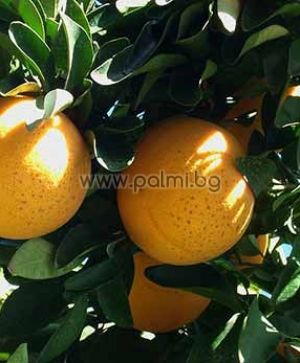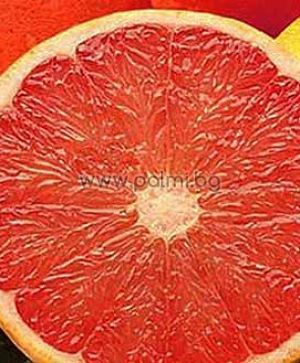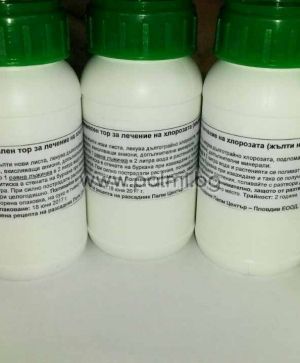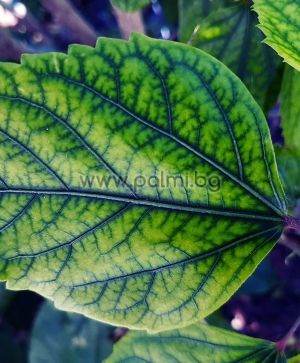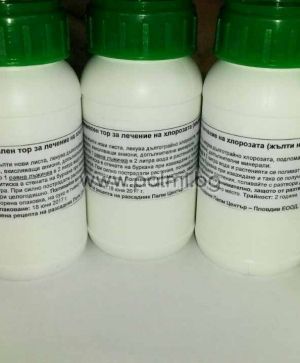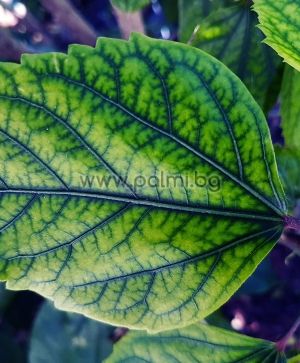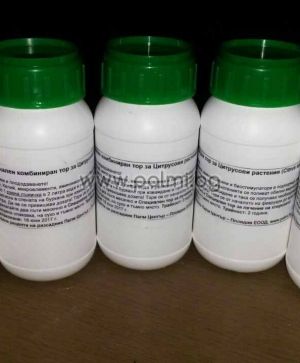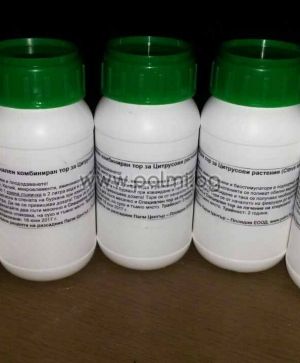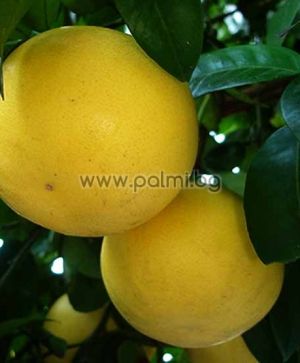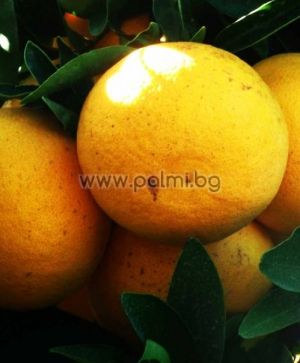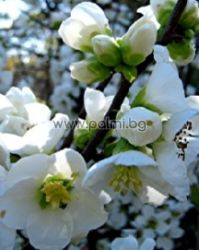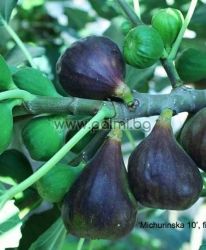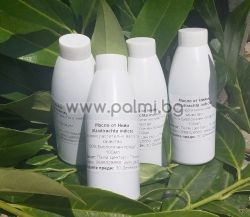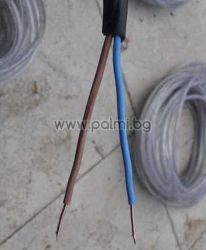Grapefruit and Pomelo varieties
Grapefruit and Pomelo varieties, Citrus paradisi and Citrus grandis. We have a good assortment of Grapefruit and Pomelo varieties - early, middle and late ripening. Sweet and juicy.
Grapefruit, variety Star Ruby
Important notice! Most citrus plants on the market are produced for planting in orchards in the Mediterranean countries. They have a large overall height, have high graft and are difficult to shape and support at home. Rootstocks on which they are grafted are very fast growing, which is fine for the open ground in the subtropics, but is not desirable when growing in pot in the temperate climate.
All our small citrus plants are produced specifically for the Bulgarian market and are ideally suited for home cultivation. The rootstocks cause compact growth, grafts are low and this allows making an excellent shape of the crown, to be suitable for growing in pots. The used rootstocks are trifoliate orange (Poncirus trifoliata 'Flying Dragon') and Volkamer lemon, Citrus volkameriana. Trifoliate orange is frost-hardy to -25°C, and significantly increases the cold resistance of plants grafted on it.
Citrus paradisi cv. Star Ruby
Grapefruit, variety Star Ruby from Botanical Garden - Plovdiv, Bulgaria
The grapefruit fruits are the most valued for nutritional and dietary qualities of all citrus fruits. It is not suprising, that these are the most consumed citrus fruits in America. They gain more and more popularity in Europe as well.
Of all grapefruit varieties, the fruit's pulp of Star Ruby has the darkest red color. The taste and aroma are excellent.
As with all other Citrus plants, the orange is susceptible to scales and spider mites and needs to be sprayed twice a year.
In winter it will need a cool place with temperatures 0-10 degrees Celsius. If the temperature is higher, the leaves usually fall off. In summer it needs to be outside and abundantly watered.
Much more information about all citrus species is available on our forum:
Availability: 3 pcs
300 g fertilizer for treatment of chlorosis
Fertilizer concentrate for chlorosis treatment
Special blend, prevents the appearance of yellow new leaves, treats long-lasting chlorosis, supports quality growth
Ingredients: Iron salts, magnesium salts, acidifying ions, additional minerals.
Application: Dissolve 1 tablespoon in 1 gallon of tap water and water the plants abundantly every 2 to 4 weeks. In case of severely damaged plants, apply the fertilizer every 2 weeks until green and quality new growth is developped! Could be applied all year round to potted plants. Use with caution to avoid rust spots on any surrounding surfaces! Please note, that this fertilizer will affect mostly the new growth, not the old leaves that are already damaged. Do not overdose!
Storage: In a tightly closed package, in a dry and dark place. Durability: 2 years.
Net: 10.5 oz (300 gr)
Own recipe of the nursery Palm Center-Plovdiv Ltd., Bulgaria, www.palmi.bg
Availability: 3 pcs
200 g fertilizer for treatment of chlorosis
Fertilizer concentrate for chlorosis treatment
Special blend, prevents the appearance of yellow new leaves, treats long-lasting chlorosis, supports quality growth
Ingredients: Iron salts, magnesium salts, acidifying ions, additional minerals.
Application: Dissolve 1 tablespoon in 1 gallon of tap water and water the plants abundantly every 2 to 4 weeks. In case of severely damaged plants, apply the fertilizer every 2 weeks until green and quality new growth is developped! Could be applied all year round to potted plants. Use with caution to avoid rust spots on any surrounding surfaces! Please note, that this fertilizer will affect mostly the new growth, not the old leaves that are already damaged. Do not overdose!
Storage: In a tightly closed package, in a dry and dark place. Durability: 2 years.
Net: 7 oz (200 gr)
Own recipe of the nursery Palm Center-Plovdiv Ltd., Bulgaria, www.palmi.bg
Availability: 14 pcs
Grapefruit, variety Marsh seedless
Important notice! Most citrus plants on the market are produced for planting in orchards in the Mediterranean countries. They have a large overall height, have high graft and are difficult to shape and support at home. Rootstocks on which they are grafted are very fast growing, which is fine for the open ground in the subtropics, but is not desirable when growing in pot in the temperate climate.
All our small citrus plants are produced specifically for the Bulgarian market and are ideally suited for home cultivation. The rootstocks cause compact growth, grafts are low and this allows making an excellent shape of the crown, to be suitable for growing in pots. The used rootstocks are trifoliate orange (Poncirus trifoliata 'Flying Dragon') and Volkamer lemon, Citrus volkameriana. Trifoliate orange is frost-hardy to -25°C, and significantly increases the cold resistance of plants grafted on it.
Citrus paradisi cv. Marsh seedless, Grapefruit
variety Marsh seedless from Botanical Garden - Plovdiv, Bulgaria
The grapefruit fruits are the most valued for nutritional and dietary qualities of all citrus fruits. It is not suprising, that these are the most consumed citrus fruits in America. They gain more and more popularity in Europe as well.
The fruits of Marsh seedless variety have yellow pulp. The peel is yellow. The taste and aroma are excellent, typical for Grapefruits.
As with all other Citrus plants, the orange is susceptible to scales and spider mites and needs to be sprayed twice a year.
In winter it will need a cool place with temperatures 0-10 degrees Celsius. If the temperature is higher, the leaves usually fall off. In summer it needs to be outside and abundantly watered.
Much more information about all citrus species is available on our forum:
Availability: 3 pcs

